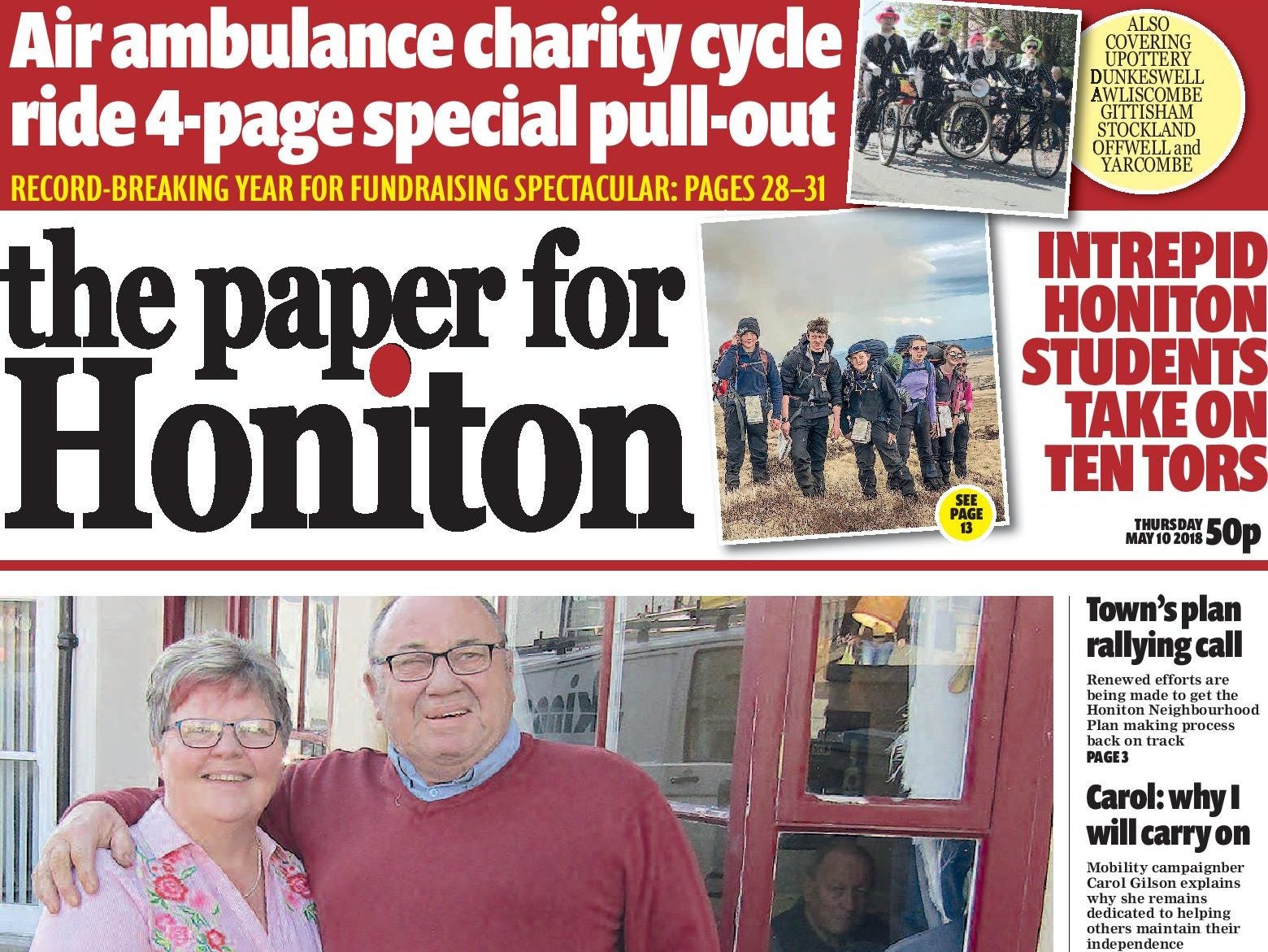
A former regional newspaper editor who has launched his own community title has said there is still room for “local and longer” reads in print that would not work online.
Tim Dixon, former Western Gazette and Western Daily Press editor, has launched the Paper for Honiton, a print-only weekly title covering the Devon town where he lives.
He told Press Gazette he launched the paper to give the local community a “proper traditional newspaper” with all the news and sport.
“I am a big advocate of print, I always have been,” he said.
“It isn’t that I don’t understand the internet, but I think there is room for print. It’s a completely different beast to news online. Local and longer – there is still an appetite for that.”
After a free launch edition on 3 May, Dixon officially put the newspaper on sale for 50p on Thursday last week. By Monday afternoon, 700 copies had been sold, he said.
Honiton is already served by the Archant-owned free newspaper the Midweek Herald, which also covers Axminster, Seaton and surrounding areas in east Devon.
Before most of the View From series of newspapers closed in January it too had a Honiton edition, although it still publishes the View From Blackdown Hills which takes advertising covering the town.
But Dixon said: “People in Honiton, and it’s quite normal, they feel like [the newspapers] don’t specifically cater for them.”
Dixon said he met various groups, businesses, councillors and other individuals in the town before launching the newspaper to see whether there was an appetite for it.
He described it as a “very different proposition” from a normal local newspaper, saying it was “very much something that has come from the grassroots upwards”.
As well as covering typical local news subjects such as council reporting, Dixon said he has seen a huge level of interest from community contributors. Among them are a retired sergeant major who writes poetry and a retired policeman who writes nature notes accompanied by watercolour paintings.
Dixon said: “It’s just been quite extraordinary and what seems to have happened – this is only week two and we are about to publish the third edition so I mustn’t get carried away here – but I think there is a real appetite for the newspaper.
“It disputes the idea that newspapers are past it and nobody is interested in them anymore. I honestly think in the industry that we just didn’t do those newspapers particularly well – I think particularly in the last ten years when the drive for cuts and economies has absolutely decimated newsrooms.”
He added: “With sufficient content that’s interesting and unique… we will drive the sale of the paper and become sustainable.”
The newspaper needs to earn £750 in advertising revenue each week or sell 1,000 copies – which Dixon hopes will happen within six months – to be sustainable. That would be equal to about a 10 per cent penetration of Honiton’s 7,752 households.
Dixon, who launched the project himself with help from upfront investment from advertisers, said: “They are very modest figures but that’s what’s quite good about it – it doesn’t need a big investor.”
When he first met potential advertisers, Dixon told them: “The paper isn’t going to deliver a massive, massive audience but you might like to be seen supporting something that’s considered to be a community asset.”
Dixon estimates the newspaper cost around £3,000 to launch, excluding any cost attached to his time. He spent two months working solidly on the project before its launch.
In the first week Dixon’s advertising colleague, one of a small number of part-time colleagues supporting his “one-man band”, sold £2,000 worth of advertising space.
However he said: “I don’t think we can do this in a conventional way by trying to squeeze huge amounts of print advertising from the town when print advertising is disappearing out of print and going online.
“So this would have to be a different model and it would have to be a model which is essentially driven by its circulation, by people paying for it again.”
Email pged@pressgazette.co.uk to point out mistakes, provide story tips or send in a letter for publication on our "Letters Page" blog
